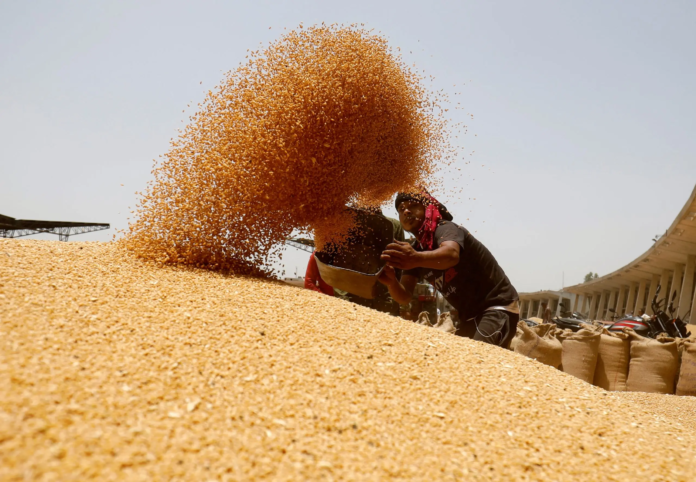
The Indian government has set up a committee to monitor the impact of rising temperatures on the wheat crop. The move comes in response to concerns that the changing climate is having a negative impact on crop yields, which could have a major impact on India’s food security.
The committee is made up of representatives from the Ministry of Agriculture, the Indian Council of Agricultural Research (ICAR), and other government agencies. The committee will monitor the weather patterns and crop conditions in wheat-growing regions across the country and make recommendations on how to mitigate the impact of rising temperatures.
The wheat crop is one of the most important crops in India, and any decline in its production could have a major impact on the country’s food security. India is the world’s second-largest producer of wheat, after China, and the crop is a staple food for millions of people across the country.
The impact of rising temperatures on crop yields has become a major concern in recent years. According to a study by the Indian Council of Agricultural Research, the yield of wheat and rice crops could decline by up to 10% for every one degree Celsius rise in temperature.
The rising temperatures are also having an impact on other crops, such as maize, soybean and cotton. The government is taking a number of steps to address the issue, including promoting the use of drought-resistant crops and implementing better irrigation systems.
The new committee will focus specifically on the impact of rising temperatures on the wheat crop. It will monitor weather patterns, soil moisture levels, and other factors that can impact crop yields. The committee will also make recommendations on how to mitigate the impact of rising temperatures on the crop.
One of the key recommendations that the committee is expected to make is the use of new wheat varieties that are more resistant to high temperatures. The ICAR has already developed several such varieties, and the government is promoting their use among farmers.
The committee will also look at ways to improve irrigation systems and increase the availability of water for the wheat crop. This could include the use of new technologies such as drip irrigation, which is more efficient and uses less water than traditional irrigation systems.


